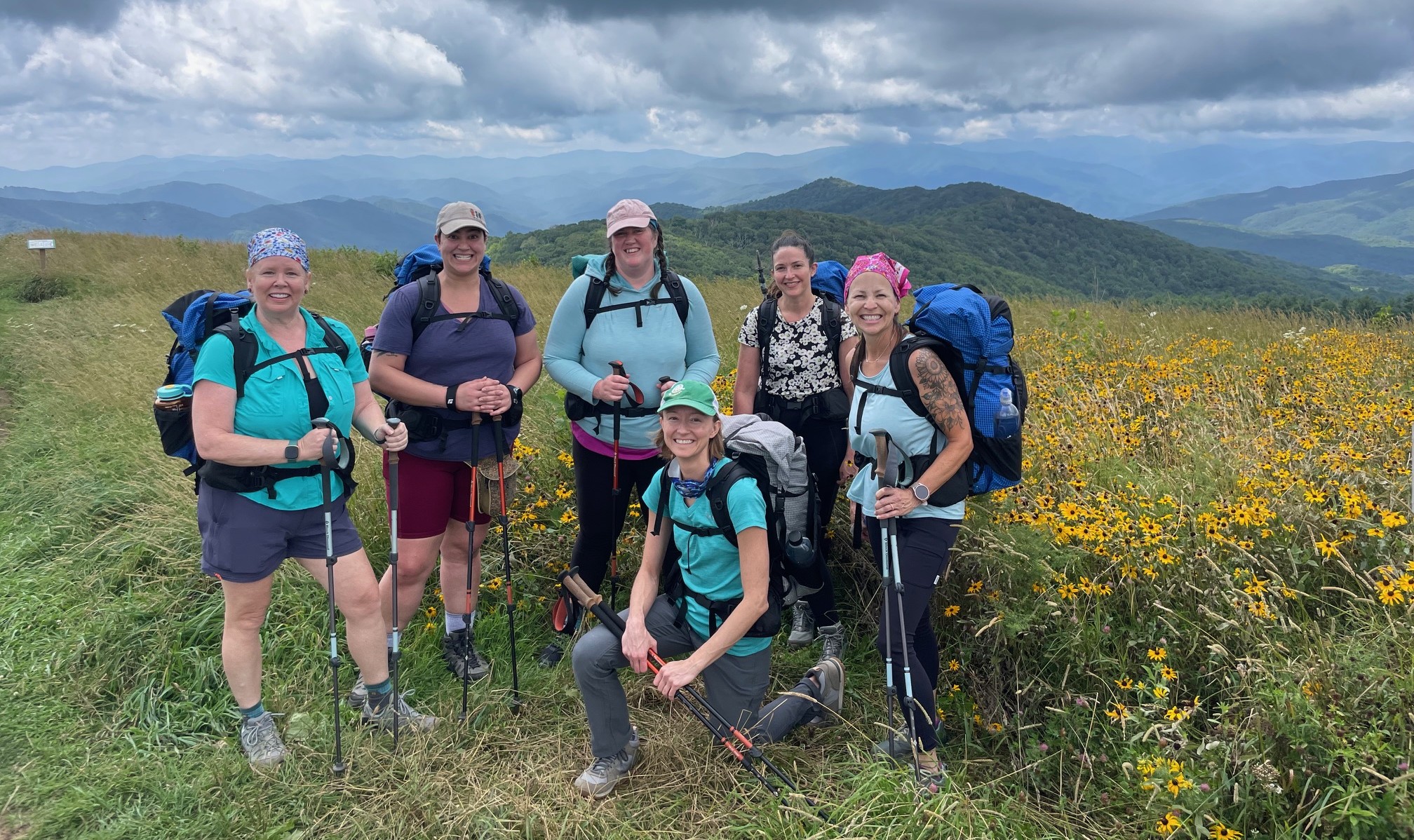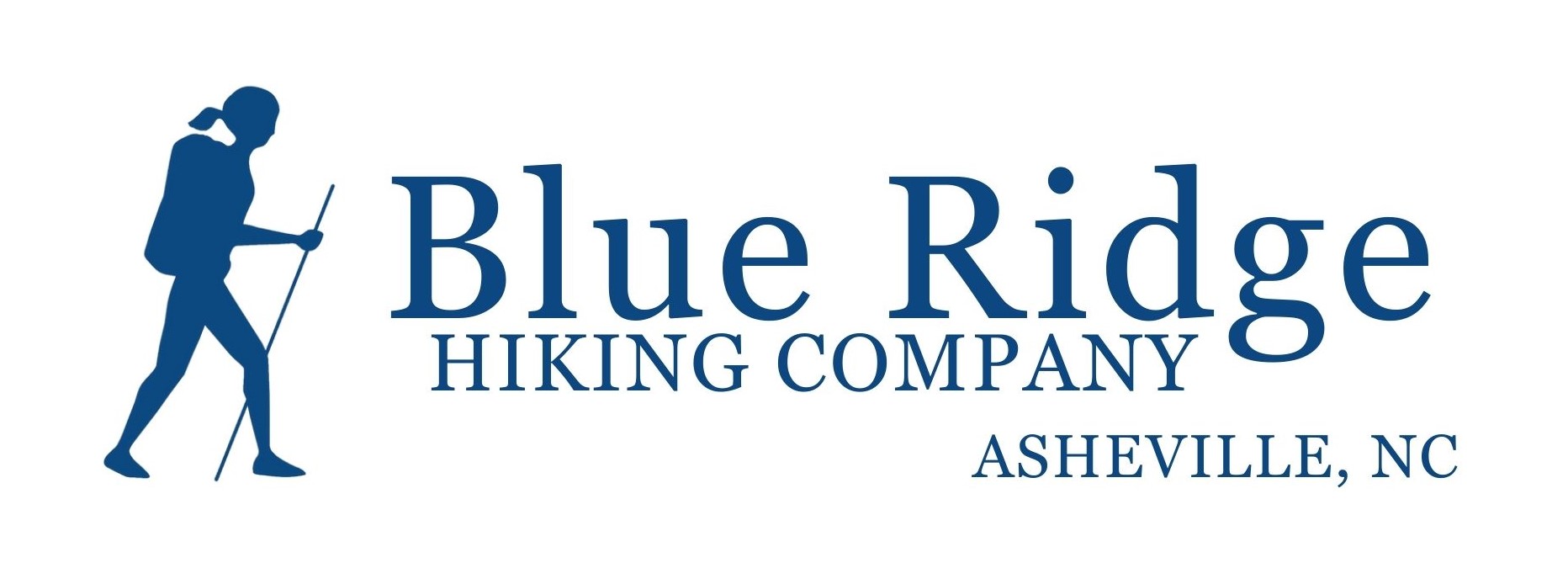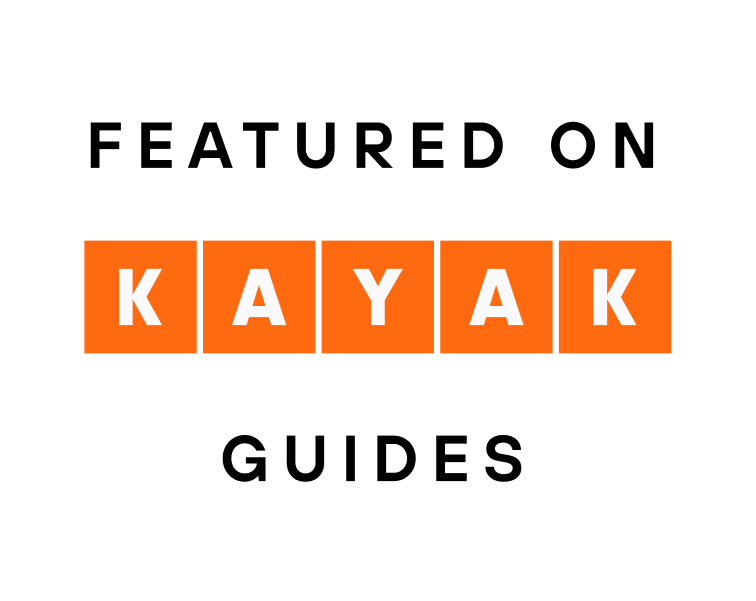Backpacking Trip Difficulty Levels
Choosing the Right Trip for You

Our 1-5 Level Rating Scale
Revised for the 2026 season, our backpacking trip levels are designed to help you choose an experience that feels both achievable and rewarding. Levels 1–3 are welcoming to first-time backpackers, while Levels 4 and 5 are ideal for hikers looking to build on existing experience or tackle longer, more immersive journeys. All trips are fully guided, paced thoughtfully, and supported by instruction along the way.
Level 1 — Learn
Level 1 trips are all about learning the fundamentals in a relaxed setting. Short mileage, gentle terrain, and a strong educational focus create a supportive environment for first-time backpackers who want to gain confidence without feeling rushed or overwhelmed.
1 night | Up to 4 miles per day with a full backpack | <1,000ft of elevation gain per day | Gently rolling terrain
Level 2 — Ease In
Level 2 trips are approachable and encouraging. These trips are perfect for beginners who want to expand their comfort zone, practice skills, and experience the rhythm of a multi-day backpacking trip.
2 nights | Up to 8 miles per day with a full backpack | Up to 1500ft of elevation gain per day | Rolling terrain with a few noticeable ascents and/or descents
Level 3 — Build Confidence
Level 3 trips are ideal for beginners who enjoy being active and moving consistently throughout the day. These trips feature longer mileage and more elevation than levels 1 and 2, rewarding participants with classic mountain scenery and a strong sense of accomplishment.
2 nights | Up to 10 miles per day with a full backpack | Up to 2000ft of elevation gain per day | Rolling terrain with a few noticeable ascents and/or descents
Level 4 — Expand Your Horizons
Level 4 trips offer full, rewarding days in mountainous terrain. These itineraries are well-suited for hikers who are physically prepared for longer distances and sustained elevation gain, including fit first-time backpackers or those with prior hiking or backpacking experience.
3+ nights | Up to 13 miles per day with a full backpack | Up to 2000ft+ of elevation gain per day | Mountainous terrain
Level 5 — Conquer a Challenge
Level 5 trips are our most immersive backpacking experiences, featuring longer days, notable elevation gain, and rugged mountain terrain. These trips are best for backpackers with prior experience who are excited by challenging routes, remote settings, and a deeper backcountry journey.
4+ nights | Up to 15+ miles per day with a full backpack | Up to 2000ft+ of elevation gain per day | Rugged, mountainous terrain
Considerations When Choosing a Trip
If you don’t live in a mountainous area or aren’t used to carrying a full backpack, it can be hard to know which trip level will feel like the right fit. As you review the details for each of our five difficulty levels, the factors below can help you compare your current experience and fitness with the trip you’re considering.
Trip Length: Consider how many consecutive days you feel comfortable hiking and carrying a backpack. Longer trips require not only sustained energy, but also the ability to recover overnight and feel ready to hike again the next day. Comfort moving your hips and shoulders throughout the day — especially when putting on, taking off, and adjusting your pack — becomes increasingly important as trip length increases.
Elevation: Elevation gain has a significant impact on how a hike feels. Walking on flat ground is a great way to gauge your baseline fitness, but climbing adds extra effort. Steeper ascents and descents also place more demand on hip mobility and balance, particularly when stepping up onto rocks, navigating uneven footing, or hiking downhill with a pack. A helpful rule of thumb is that every 1,000 feet of elevation gain can feel similar to adding about one extra mile of distance. For example, a 10-mile hike with 2,000 feet of elevation gain can feel roughly comparable to a 12-mile hike on flat terrain.
Distance: Most hikers can cover more ground with a light day pack than with a full backpack. Carrying a heavier pack places more strain on the shoulders and core, which can affect comfort over longer distances. As a general guideline, you can expect to hike about 25% farther on a day hike than on a backpacking trip over similar terrain. If your comfortable maximum day hike is around 10 miles, a backpacking distance of 7–8 miles per day is a more realistic expectation.
Terrain: Trail conditions play a major role in how far and how comfortably you can hike. Rocky, rooty, or uneven trails require more balance, coordination, and careful foot placement than well-groomed paths, often leading to a slower, more deliberate pace. Many of the trails we use in Western North Carolina include narrow tread, rocks, roots, and stream crossings, which add to both the challenge and the sense of adventure.
Still Unsure?
That’s completely normal — many of our guests feel uncertain when choosing a level, especially if they’re new to backpacking or unfamiliar with mountain terrain. Remember that the distances and elevation listed represent maximums, not constant expectations, and our guides carefully pace each day with regular breaks and support. If you’re between levels or just want a second opinion, we’re always happy to help you choose a trip that feels both comfortable and rewarding. You can reach us by phone at 828-713-5451 or by email at trips@blueridgehikingco.com.








